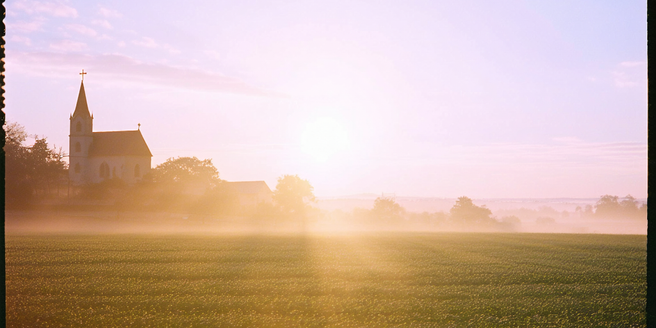Introduction to Zulu Cosmology
| Concept | Description | Significance |
| Unkulunkulu | The first man created by God | Central to creation beliefs |
| Amadlozi | Ancestors in Zulu cosmology | Bridge between the living and spiritual realms |
| Izinyanga | Healers and diviners | Intermediaries with the spirit world |
| Mythical Creatures | Spirits embodying natural elements | Symbolize human connection to nature |
| Creation Myths | Stories of universe’s origin | Explains existence and order |
The Role of Traditional Storytelling
In Zulu culture, traditional storytelling is more than entertainment; it is a fundamental tool for preserving history, culture, and moral lessons. Each tale is rich with metaphors and moral teachings, often delivered by elder members of the community. This oral tradition allows the Zulu people to pass down knowledge from one generation to the next, thus keeping their cultural heritage alive. Storytelling sessions are community events, where listeners are not just passive participants but are encouraged to engage, reflect, and ask questions. Through these narratives, the values of the community, such as respect for elders and the importance of nature, are reinforced. Moreover, storytelling acts as a way to communicate the significance of ancestral roots and spiritual beliefs, forging a strong communal bond among listeners.
The Legend of Unkulunkulu: Creator
Unkulunkulu is a central figure in Zulu mythology, revered as the creator of humanity and the world. According to the legend, Unkulunkulu emerged from a bed of reeds, bringing forth all life. He is considered the first ancestor, from whom all Zulu people descend. This myth serves to unite the Zulu people, as it provides a shared origin story that underscores themes of kinship and community. As the progenitor of humanity, Unkulunkulu’s story emphasizes the interconnectedness of life and the responsibility humans have to maintain harmony with the earth and one another. His legend is an essential aspect of the Zulu worldview and spiritual beliefs, reinforcing the idea that life is a precious gift bestowed by a divine source.
Mythical Creatures and Spirits
Zulu folklore features a variety of mythical creatures and spirits that represent aspects of the natural world and human experience. These entities, such as the Tikoloshe and Abatwa, play significant roles in the cultural narratives and serve as cautionary figures or bearers of wisdom. The Tikoloshe, for instance, is often depicted as a mischievous spirit that may cause trouble if not appeased properly. Such myths serve to instill values and norms, warning of the consequences of acting against communal harmony. Spirits and creatures in Zulu folklore also reflect the people’s deep connection to nature, as they often embody elemental forces like water and earth. These stories teach respect for the environment and highlight the belief that all life is interconnected.
The Zulu Interpretation of the Universe’s Origins
In Zulu cosmology, the universe’s origins are deeply rooted in myth and spiritual belief. Creation stories often involve natural elements like earth, water, and sky, illustrating the community’s intrinsic relationship with the world around them. According to these beliefs, life began with Unkulunkulu, who emerged from the reeds and set forth the process of creation. This account reflects the Zulu understanding of life as a cyclical and interconnected journey that begins and ends with nature. Such narratives underscore the idea that human life is but a small part of a greater cosmic order. The mythology surrounding the universe’s origins also emphasizes balance and harmony, suggesting that humans are caretakers of the earth and must live in accordance with its rhythms.
Ancestral Worship in Zulu Beliefs
Ancestral worship holds a vital place in Zulu spirituality, where the spirits of departed ancestors, or Amadlozi, are believed to influence the living. Ancestors are seen as protectors and guides, and maintaining a strong connection with them ensures the well-being of both individuals and the community. Rituals and ceremonies honoring ancestors involve offerings, prayers, and communication through designated intermediaries like the Sangoma. This practice is rooted in the belief that ancestors reside in the spirit world but maintain an ongoing relationship with the living. Ancestral worship reinforces familial bonds and provides a framework for respecting the elders and those who have passed on. It is a means of connecting the past with the present and preserving cultural continuity.
The Symbolism of Nature
Nature plays a pivotal role in Zulu mythology, both as a source of life and a symbol of the divine. The natural world is not just a backdrop for stories but an active participant in the myths and beliefs of the Zulu people. Elements like rivers, mountains, and animals carry spiritual significance and embody the presence of divine forces. For instance, the river is often seen as a life-giving entity that also represents the fluidity and continuity of life. Similarly, animals are frequently seen as messengers or incarnations of ancestral spirits. This deep reverence for nature underscores the Zulu philosophy of living in harmony with the environment. It teaches respect and gratitude for the natural world, which is viewed as a gift from the deities that must be preserved and cherished.
Comparing Zulu Myths
When comparing Zulu myths with other African creation stories, certain themes and motifs consistently emerge, highlighting cross-cultural connections. A prevalent feature among these narratives is the concept of a supreme being or creator who initiates the formation of the world and humanity. In Zulu mythology, this role is ascribed to Unkulunkulu, while different African cultures have their respective deities with parallel functions. Additionally, themes of interconnectedness and harmony with nature are common, reflecting a broader African worldview that emphasizes unity and responsibility towards the earth. However, each culture’s myths are uniquely molded by their specific environments and historical contexts, which shape the distinct characters and events within their stories. This rich tapestry of myths illustrates the diversity and shared humanity across African cultures.
Influence of Zulu Beliefs
Zulu beliefs and mythology have left an indelible mark on modern South African culture. Elements of traditional narratives and spiritual practices continue to be celebrated and observed in both rural and urban communities. The integration of Zulu deities and myths in art, music, and literature reflects a persistent reverence for traditional roots. During cultural festivals, stories of Unkulunkulu and other mythological figures are retold, serving to unite people through shared heritage. Even in contemporary religious practices, the influence of Zulu spirituality can be observed in the syncretic blending of indigenous beliefs with other religious traditions. This cultural homage not only preserves Zulu history but also enriches the cultural landscape of South Africa, promoting a diverse and inclusive national identity.
Preservation of Zulu Myths
The preservation of Zulu myths in contemporary society is crucial for maintaining cultural history and identity. Efforts to record these stories through written works, digital media, and educational programs aim to ensure their survival amidst the challenges of modernization. Educators and cultural organizations emphasize the importance of teaching Zulu mythology to younger generations, fostering a deeper appreciation for their heritage. Community storytelling events and cultural festivals provide platforms for sharing and celebrating these age-old narratives. Additionally, collaborations with historians and anthropologists contribute to more comprehensive documentation and analysis of Zulu myths and their significance. Such endeavors not only keep the myths alive but also encourage cultural pride and continuity, allowing future generations to connect with their ancestral roots.










